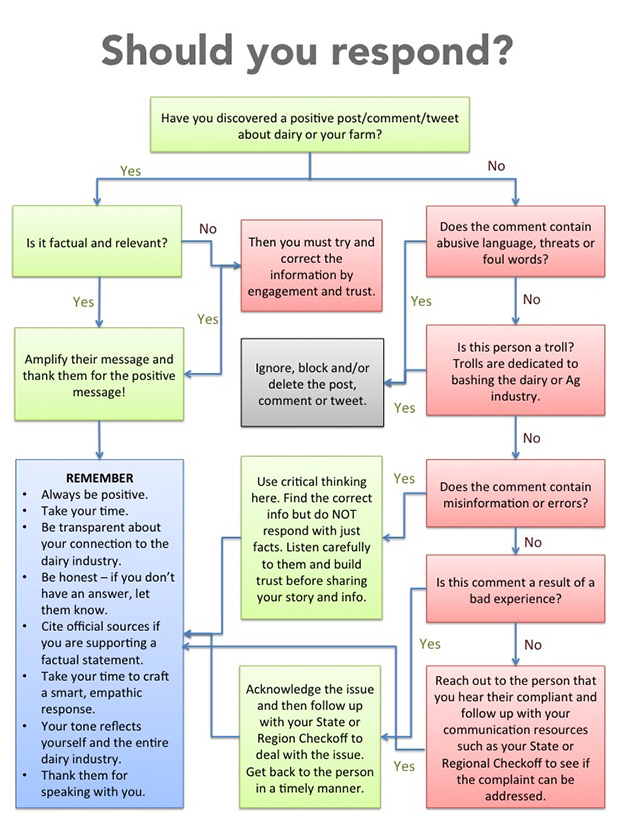Whoops! Guess you pissed somebody off. Cause you just got a seriously negative comment on your post. Or did you?
Listen, these things are going to happen. Especially if you are making a difference in the world. There are always going to be naysayers and critics. You can see them as a worrisome burden or an outstanding opportunity. Or you can see that as what they really are in most cases – attention.
Much like there’s no such thing as bad press, negative comments mean that people are paying attention. How you deal with that attention especially negative attention says a lot about your character.
I know it’s tough to not put on your gloves (I love to box and counterpunching is how a lot of fights are won according to my trainer) but this is a social world and everything you say can be spread virally. With this in mind, we’ve put together some guidelines that may help you when you run into negative feedback.
First things first:
Evaluate the messenger – definitely go check out their profile before you answer. Most detractors have a lot of things on their profile that will let you know that they aren’t here to just ask a few questions. They are here to argue with you about what you do. As my friend Kim Kirchherr says you don’t have to attend every argument you are invited to. If there isn’t any chance to persuade or give them insights into what you do, there’s no reason to engage.
Use your listening skills – with just text, it’s really hard to tell if they are being inquisitive or sarcastic. People forget commas and write like they talk. Say it out loud in a couple of different tones. I always try and think that most people have good intentions but they don’t write them that way.
Ask more questions to clarify what they are talking about – don’t just make assumptions. You could be off by a mile and a half and you just wasted a ton of your time and you didn’t answer their question.
Be respectful and polite – farmers are some of the most respected people on the planet. Don’t soil yours as well as your fellow farmers’ reputation by getting into a name-calling, ALL-CAPS shouting match.
Use your own experiences as examples – you can prove how you take care of your animals by posting pics and videos of them. You’ve got tons of stories of leaving your warm bed to stay up with a sick calf. That’s a big deal and people sympathize.
Be on the offense, not defense – if you get defensive, you are losing. And there’s no reason for it. You are the expert about how you farm and you can explain your point of view but don’t get backed into a corner. Use the “Yes, I understand your point, and this is what we do…”
Don’t use jargon – most people don’t grow up on farms so don’t talk to them like you do another farmer. Talk them like friends that you want to entertain and provide info to.
Provide links to other experts – if you are scientist like my farmer friend, Joe Kelsey, then you probably understand a lot of the science behind everything you do. If not, you can rely on your expert friends in the dairy community like Dr. Greg Miller or Jean Ragalie-Carr, RD. They are here to help.
Take the time to craft a thoughtful response – this is not a race to finish the conversation. You can always get back to them with a “That’s a great question and I want to give you a thorough answer. I’ll reach back out in a little while to get you that answer. Is that ok?”
If you don’t have an answer, let them know – you don’t have to know everything. You are not speaking for the entire dairy universe. It’s better to just admit there’s something you don’t know and send them to someone who might know.
Find some common ground – we’re all people right? We’re all in this together so there has to be some common ground somewhere. I see it mostly with kids. You got kids. I got kids. They are awesome and difficult to deal with. We do almost everything for our kids. Including feed them.
Thank them for speaking with you – most people just stalk the internet reading everything. A few people speak up. When they do, understand that they are putting themselves out there as well.
Not every negative comment is really a negative – here are some really great farmer advice from social savvy farmers (like dairycarrie and Ray Prock) and industry professionals (Janice Person) who have been advocating for quite some time.
I’ve built a social media flow chart on how to handle negative comments in an objective way (if it can ever seem objective). You can download it for free and use with your farm or business.

When things get real bad, like scary bad, here’s how to handle cyberbullying that allows you to discover who is after you and how to put an end to it.
Now I would like to discuss how to handle negative comments on the different platforms. There’s some different things you can do to keep yourself and your reputation intact and protected.
Facebook Profile
Facebook Page
Twitter Profile
Pinterest Profile – coming soon
YouTube Channel – coming soon
Instagram Profile – coming soon
Any other platforms I should go over?

Leave a Reply